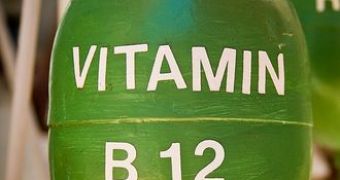A new research supports the idea that vitamin B12 helps reduce the risk of memory loss, by saying that it could protect against Alzheimer's disease.
This conclusion came after a seven-year study, which focused on 271 Finnish people, aged 65 to 79, without any dementia problems at the beginning of the research, during which 17 people developed Alzheimer's.
The blood samples that were originally taken, were tested for homocysteine levels (homocysteine is an amino acid who is related to vitamin B12) and for holotranscobalamin, which is the active part of the vitamin.
The results showed that too much homocysteine in the blood led to negative effects on the brain, like stroke, but the good news is that higher levels of vitamin B12 can lower the dangerous levels of homocysteine.
What the researchers concluded was that for every micromolar rise of the homocysteine concentration, there was an increase in Alzheimer's disease risk of 16%; and for every picomolar increase in the active form of vitamin B12, the risk was down by 2%.
The encouraging thing is that even after accounting for age, gender, education, blood pressure, smoking status and BMI, the results remained the same.
Study author Babak Hooshmand, MD, MSc, of Karolinska Institutet in Stockholm, Sweden, said that these “findings show the need for further research on the role of vitamin B12 as a marker for identifying people who are at increased risk of Alzheimer's disease.
“Low levels of vitamin B12 are surprisingly common in the elderly … however, the few studies that have investigated the usefulness of vitamin B12 supplements to reduce the risk of memory loss have had mixed results,” he added.
Hooshmand insisted that “more research is needed to confirm these findings before vitamin B12 should be used solely as a supplement to help protect memory.”
The study will be published today in Neurology, the medical journal of the American Academy of Neurology.

 14 DAY TRIAL //
14 DAY TRIAL //